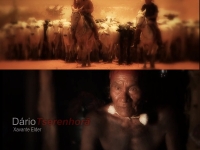Beef from Brazil: JBS Faces Allegations of Amazon Deforestation

The Xavante tribe in western Brazil and the Parakana tribe in the north-east are separated by a thousand miles of the Amazon basin but they face a common threat: the sprawling global beef export empire controlled by the Batista family from the state of Goiás.
JBS S.A. was founded in 1953 by Jose Batista Sobrinho as a small slaughterhouse in the town of Anapolis. In the last decade, JBS expanded to Argentina, acquired Smithfield and Swift Foods in the U.S. and Tasman in Australia, to make it a $33 billion multinational. Today JBS slaughters 90,000 head of cattle a day, employs 125,000 workers and exports to 150 countries, according to company statistics.
The company has benefited from loans from the World Bank and generous support from the government of President Luiz Inacio Lula da Silva who helped turn the country into the world's largest beef exporter. Much of this has come at the expense of the environment: One out of three of the 200 million cattle in Brazil graze on land cleared from the Amazon rainforest.
In an admiring article describing how the company now supplies beef from "farm to fork" to "feed ... the middle class" a Washington Post reporter described the efficiency of company operations in Lins, Brazil, in April 2011: "(T)he animal is rendered unconscious by a captive bolt pistol. It is hoisted up by its hind legs. A worker then slices the carotid artery and jugular vein, and the steer bleeds to death in seconds."
"A processing line of workers, all in hard hats and white aprons, then skin, debone, slice, can and package the meat ... The final product: rump roasts or tenderloins, corned beef or beef jerky, to be exported as far away as London."
But behind this tale is another story tracked by environmental researchers from Greenpeace who uncovered "numerous new cases of JBS purchasing cattle directly and indirectly from farms involved in illegal deforestation, invasion of protected areas and indigenous lands, and also of farms using slave labour."
Over a couple of months in 2011, Greenpeace researchers traced 834 cattle raised on illegal farms with names like Panorama and Fortoleza (fortress) inside the Maraiwatsede reserve that were sent for slaughter to the Ãgua Boa plant in Mato Grosso (financed by the International Finance Corporation, an arm of the World Bank). The reserve is the home of the Xavante people.
"The Xavantes can no longer fish because the rivers have run dry or are contaminated due to the destruction of forests, landfills invading river systems in an effort to expand pastoral areas, plus extensive use of agrochemicals. Now 85 percent of the forest has been cut down and the Xavante people's reports to the authorities describe substantial conflict with farmers accused of attempted murder and destruction of property," write the authors of JBS Scorecard, the new Greenpeace report.
The situation is similar for the Parakana tribe in the Apyterewa Indigenous Reserve. In 2009, a Reuters reporter told the story of Tamakware, a tribal elder daubed in black pigment who brandished an arrow, and "made a plaintive appeal to foreign visitors to tell President Lula to move the farmers out."
Two years later, Greenpeace found that a JBS unit in Tucuma, Para was still buying animals from a farm located within the Apyterewa indigenous land.
The beef from these operations were exported by JBS to the UK where activists were able to identify them by serial numbers on "100 tins of beef chunks, mince and corned beef" at outlets run by Tesco, Britain's biggest grocery chain.
The new Greenpeace report has had an immediate effect on JBS sales. Tesco announced today that it would stop buying JBS beef. "We started to cut back our supplies from JBS a year ago and have now ceased sourcing any canned beef products from JBS. Ethics and sustainability remain an important part of our dialogue with suppliers," a spokesman told the Telegraph newspaper.
For its part, JBS wrote to Greenpeace claiming that it was "fully committed to sourcing livestock from farms that are not involved in any illegal activities, including illegal deforestation, the invasion of indigenous lands or the use of any form of slavery." It did not confirm or deny the NGO's research.



